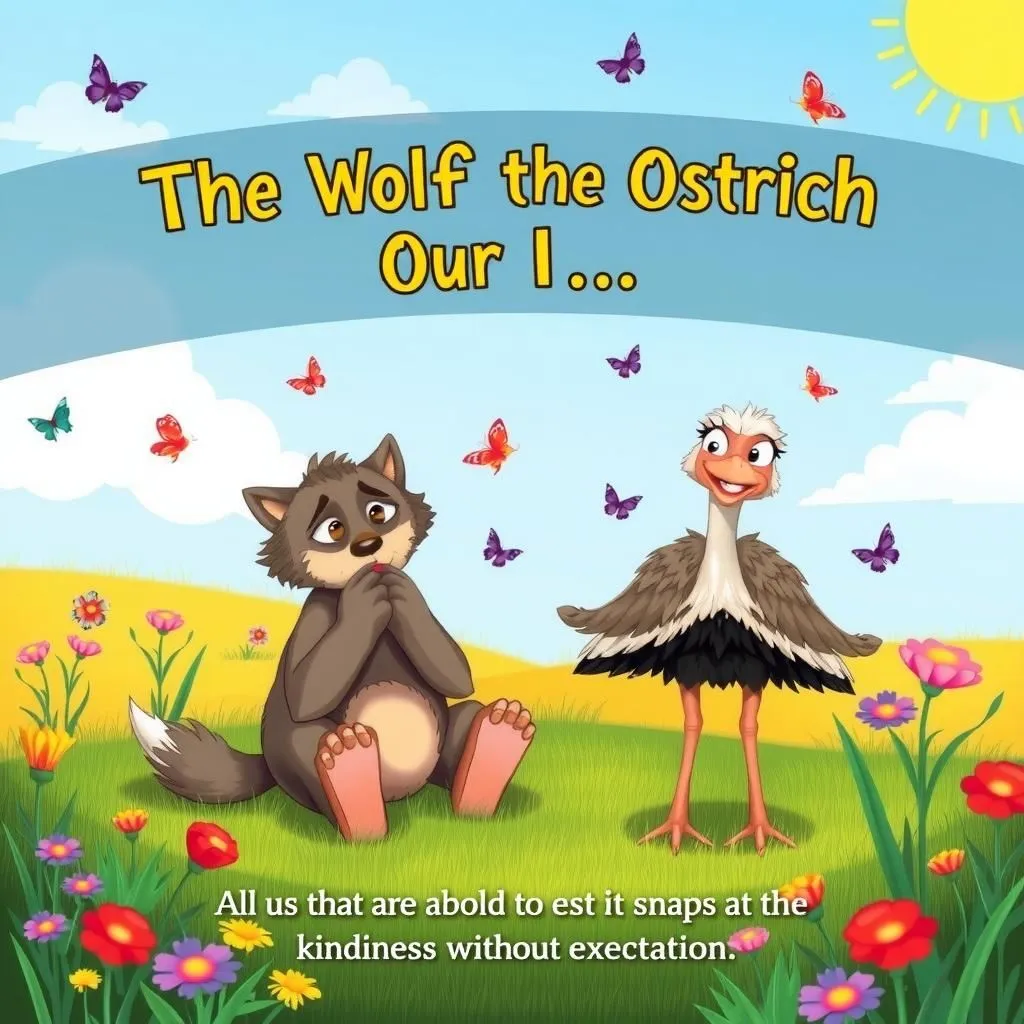
The Wolf and the Ostrich
In the creative moral story "The Wolf and the Ostrich," a wolf chokes on a bunch of keys after eating a man and asks an ostrich for help to retrieve them. The ostrich obliges but humorously claims that a kind act is its own reward, asserting that she has eaten the keys instead. This whimsical tale serves as a life-lesson moral story, illustrating that selflessness does not always seek a reward.


